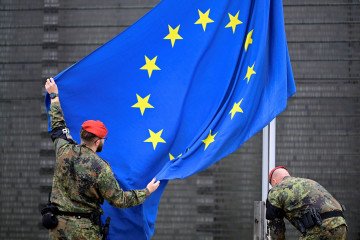- Category
- World
EU Leaders' Reactions to the Trump-Putin Phone Call
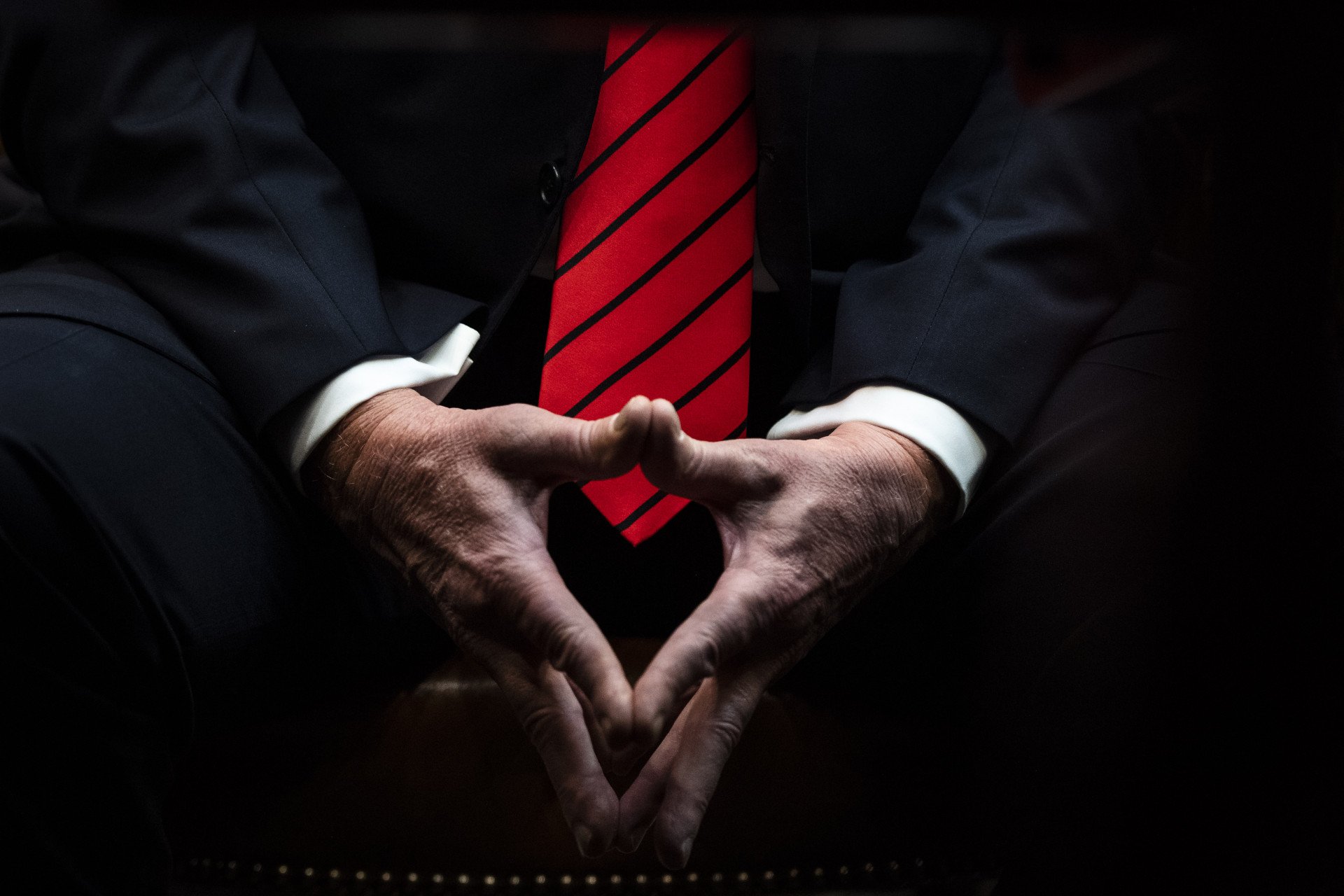
European leaders, from London to Berlin to Tallinn, swiftly reacted to Donald Trump’s phone call with Vladimir Putin, with the UK pledging more military aid, Sweden reaffirming Ukraine’s NATO prospects, and Estonia warning that Putin’s promises cannot be trusted.
“No Peace for Ukraine, without Ukraine,” seemed to be the prevailing message among European leaders early Thursday morning in light of comments made by US President Donald Trump following a phone call with Russian leader Vladimir Putin.
Throughout the night and into the early hours, European leaders united to show support for Ukraine and reject the notion of peace talks without both Ukraine and Europe.
Putin and Trump had a 90-minute phone call on Wednesday, during which they agreed to begin “immediate” talks to end Russia’s full-scale war in Ukraine. The US President announced the phone call on Truth Social. In later comments, he added that he did not believe it would be “practical” for Ukraine to join NATO. The response caused shockwaves among European leaders, many of whom are currently gathered in Brussels for the NATO conference.
Following the US President’s phone call with Putin, a second phone call to Ukrainian President Volodomyr Zelenskyy was made that lasted approximately 60 minutes. The Ukrainian president put out a statement saying he and his American counterpart discussed the topics of the phone call with Russia and how they may create a “lasting, reliable, peace.” However, many European leaders feel these discussions are largely excluding Ukraine citing an alleged initial meeting that is being discussed between Russia, the US, and Saudi Arabia.
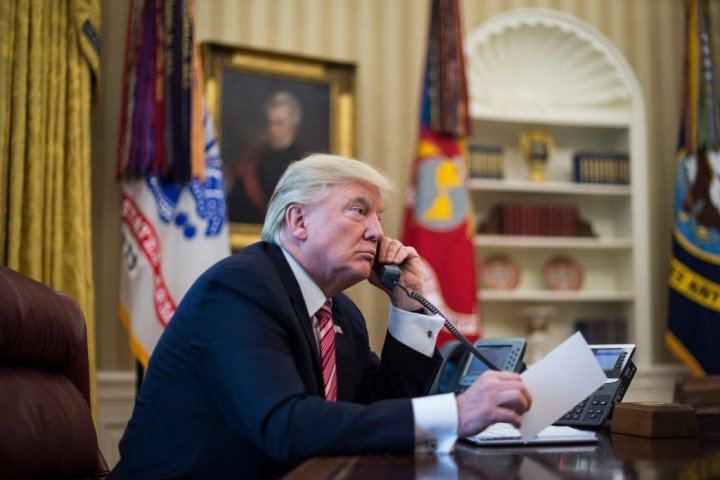
It’s no secret that the beginning of the Trump Presidency has been marked by a flurry of executive orders and announcements, notably regarding foreign policy. Recently, the president has halted his country’s largest foreign aid program, USAID, and has held meetings with the Israeli Prime Minister and the King of Jordan, where he proposed that the US acquire Palestine. Still, many are shocked by the recent phone call with Putin.
UNITED24 Media examines the European response to the Trump-Putin phone call in an effort to better understand what lies ahead in the days and weeks ahead.
The United Kingdom
UK Defence Secretary John Healey commented immediately following the call, iterating the popular slogan, “No Peace talks about Ukraine without Ukraine.” The Secretary is one of several defense ministers in Brussels this week for the NATO conference.
Healy stated that it is now NATO’s job to “Put Ukraine in the strongest position for any talks.” Looking forward Healey said there will be announcements to follow at the conference on further support for Ukraine through NATO including billions in firepower for frontline Ukrainian fighters.
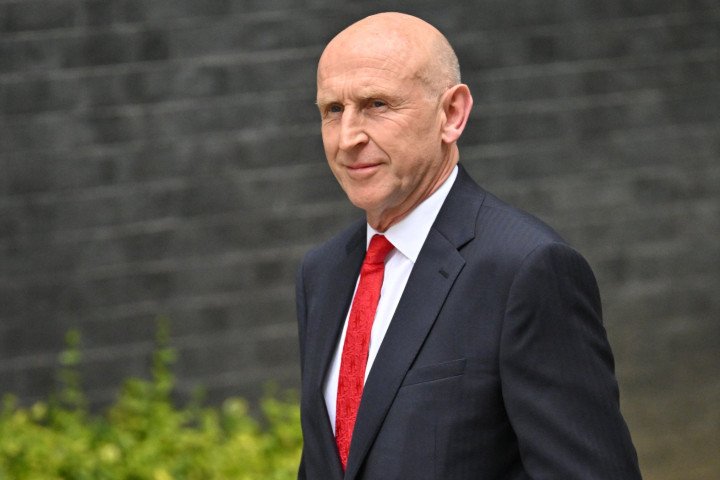
The UK announced an additional 4.5 billion pounds in military aid this week, showing that it is ready to step up and assume a larger role in regional defense.
For European members of NATO, the threat of Russia is more real perhaps than for those in Washington, as Europe has become increasingly the victim of hybrid Russian attacks. “Russia’s threat doesn’t stop at Ukraine’s borders,” the minister said. “That’s why Ukraine must be in the center of any peace discussion and Europe must have a seat at the table.”
The Foreign Minister supported peace talks in general but called for a plan that would create long-standing stability in the region. “We want to see a durable peace and no return to conflict and aggression.”
Sweden
In contrast to Trump’s comments following the call that Ukraine should abandon its prospects of joining NATO, the Swedish Defence Minister, Pål Johnson, doubled down. “I don’t foresee the NATO membership as being off the table for Ukraine,” said Johnson.
Sweden is the newest member of the alliance. In March 2024 Sweden joined NATO as fears of the Russian invasion extending beyond Ukraine surfaced. Neighboring Finland also joined just two years prior. Since the beginning of the full-scale invasion, Northern European countries have been some of the biggest advocates for increased support for Ukraine. Recently, Sweden raised its defense spending to 2.4% of its GDP, with projections to reach 2.6% by 2028.
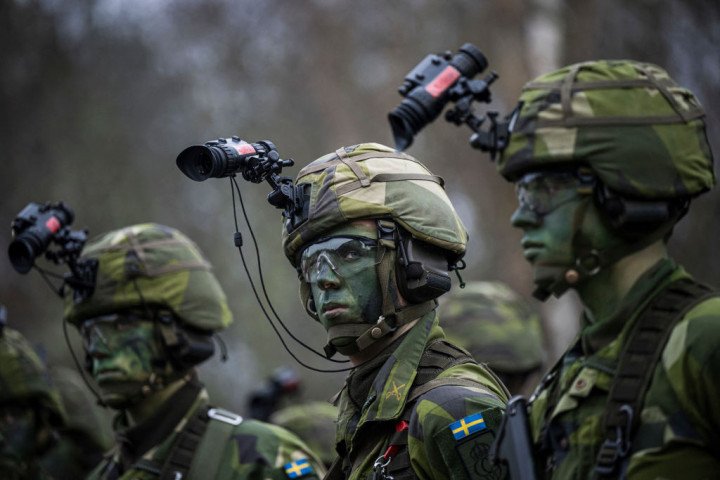
“Our position is well known and communicated and we stand behind what was said at the Washington summit, of course, that Ukraine’s future is in NATO when it lives up, of course, to the conditions,” Johnson said.
In regard to peace talks, the Swedish defense minister said it was only natural that his country be engaged in peace talks provided that 60% of the military support to Ukraine in 2024 was from European nations. He added that this is especially true if the US expects Europe to take on more responsibility for Ukraine’s security moving forward.
Estonia
Estonia, though one of the smaller countries in Europe and NATO, has gone to great lengths to help Ukraine. Sharing a 183-mile-long border with Russia and as a former member of the Soviet Union, it remembers all too well what it means to live under its oppression.
Estonia’s Ambassador to Ukraine, Annely Kolk, tells UNITED24 Media that as soon as the news broke, the Estonian Foreign Minister, Margus Tsahkna, met with his Ukrainian counterpart, Andrii Sybiha. “Nobody can push Ukraine into negotiations,” she says. “Putin has not changed his course—[so] why would he change his course in the middle of negotiations?”
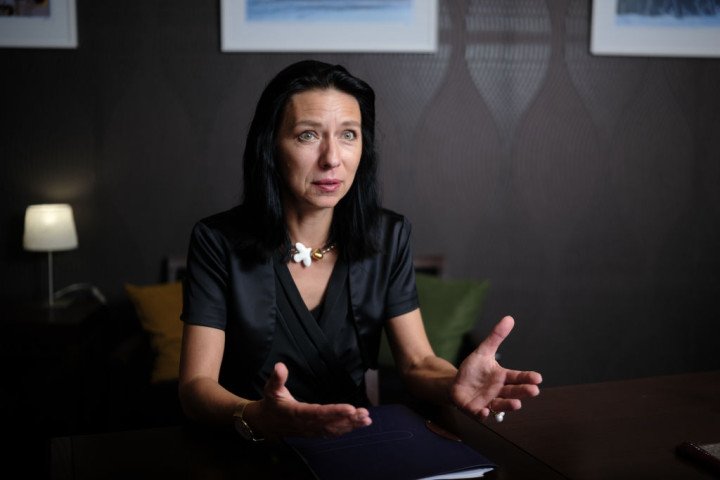
What Putin says and what Putin does are often two things different. Whether or not a longstanding peace can actually be negotiated with Russia is the looming question. “I personally think time is not on Russia’s side,” the Ambassador says.
She said that for Estonians, nothing is off the table when it comes to supporting Ukraine and that it is time for Europe to come together to do more. “Europe has all the means to defeat Russia.”
Her message to world leaders is simple, “All peace-loving countries—look in the mirror, look at each other, and really consider what is at stake.”
Germany
Germany, arguably the most powerful member of the European Union, echoed the sentiments of its fellow member countries. Germany’s Foreign Minister Annalena Baerbock said on Wednesday evening, that “Peace can only be achieved together. And that means with Ukraine and with the Europeans.”
Minister Baerbock expressed concern that both her country and the EU were not informed of the Trump-Putin talks beforehand.
France
France echoed the same sentiment as its counterparts with French Foreign Minister Jean-Noël Barrot stating on Wednesday evening, “Peace in Ukraine must be made with the voice of the Ukrainians.”
Spain
Like his Western European counterpart, Spanish foreign minister José Manuel Albares said in response to the Trump-Putin phone call that “Nothing can be decided about Ukraine, without Ukraine, and nothing about European security without Europe.”
While Spain has not been the most active supporter of Ukraine compared to other EU nations, it fully understands the threat posed by Russia. “Russia’s aggression against Ukraine clearly affects European security.”
The EU
Late Thursday night, France, Germany, Poland, Italy, Spain, and the United Kingdom released a joint statement saying that they were ready to “enhance” support for Ukraine and were committed to the country’s “independence, sovereignty and territorial integrity.”
This message of course stands in stark contrast to those points made by US Defence Secretary and former talk-show host Pete Hegseth who claimed it was “unrealistic” for Ukraine’s border to return to what it was before Russia invaded Crimea in 2014.
Ukraine's independence and territorial integrity are unconditional.
— Kaja Kallas (@kajakallas) February 12, 2025
Our priority must now be strengthening Ukraine and providing robust security guarantees.
In any negotiation, Europe must have a central role.
Our Weimar+ statement ↓ pic.twitter.com/PfdvQ4UND1
In addition to the joint statement, Kaja Kallas, EU High Representative for Foreign Affairs and Security Policy, called for “robust” security guarantees for Ukraine and that Europe must have a central role in any negotiations. “We recall that the security of the European continent is our common responsibility.” The statement also iterated that peace in Ukraine was also in the interest of transatlantic security.
What comes next?
The proposal by President Donald Trump to end Russia’s war in Ukraine shifts substantial financial and security responsibility onto European allies including security guarantees. To fulfill the proposed commitment, members of the European Union would need to provide an estimated $3.1 trillion over the next decade. This figure has raised concerns among European leaders about the feasibility of such a financial commitment versus the long-term potential implications for Europe’s security landscape.
In order to merit such a large investment from Europe, there must be security guarantees that will help European leaders and Ukraine feel confident that another Russian agression will not occur in the future. As many have proposed, the only way to truly do this would be through NATO.
There is no doubt that as of Thursday morning, Ukraine is back at the top of headlines and the top of the agenda for the upcoming Munich Security Conference where this weekend President Zelenskyy will meet with US Vice President JD Vance.
Sixty heads of state and government will attend the conference. Many expected that the US would present its peace plan at the conference, as both US Secretary of State Marco Rubio and Peace Envoy Keith Kellogg will be present alongside Vance. However, the recent phone call means that the conference will undoubtedly be focused on making sense of what has transpired so far.
Following the conference, Kellogg will head to Ukraine’s capital, Kyiv. While the US Defence Secretary cast doubts that Ukraine would return to its pre-2014 borders, President Trump did respond to a question from the BBC, saying that “some of that land”—referring to Ukrainian land occupied by Russia since 2022—“would come back.”
While so much hangs in the balance, it’s clear that European leaders are determined to step up for Ukraine and the European continent to ensure safety and stability against Russia.
-fca37bf6b0e73483220d55f0816978cf.jpeg)
-27ef304a0bfb28cb4215e5deede4a665.png)
-46f6afa2f66d31ff3df8ea1a8f5524ec.jpg)
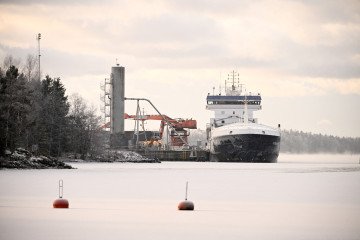
-605be766de04ba3d21b67fb76a76786a.jpg)
-2c683d1619a06f3b17d6ca7dd11ad5a1.jpg)

